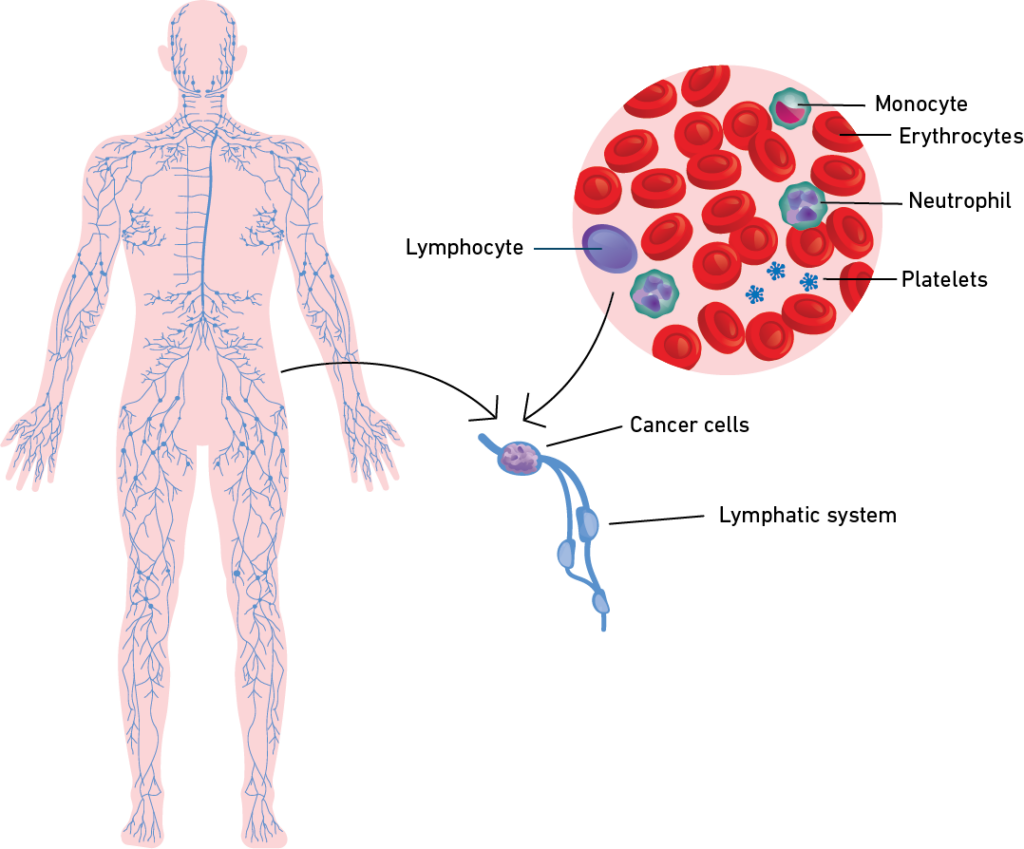
Lymphoma are blood cancers that develop in the lymphatic system
The lymphatic system is a network of lymph nodes, organs and vessels that is important for immune defense. Together with other blood cancers such as leukemia, lymphoma account for about 4–8 % of tumor cases in Switzerland.
Lymphoma starts in lymphocytes
Lymphocytes are a type of white blood cells that are formed and mature in the bone marrow and thymus. They account for 20–40 % of white blood cells and play key roles in adaptive (B- and T-cells) as well as innate immunity (natural killer cells). In the lymphatic system and other tissues, lymphocytes are responsible for detecting and fighting viruses and bacteria. If these lymphocytes proliferate in an uncontrolled manner, a heterogenous group of lymphomas may arise.
There are two main types of lymphoma
Hodgkin lymphomas and Non-Hodgkin lymphomas (NHL) are the two main types of lymphoma. The vast majority of lymphoma belongs to the NHL-type, a very diverse group of blood cancers. Depending on which type of lymphocyte is affected, NHL is further divided into different subtypes. About 85 % have a B-cell type of NHL, the others have a T-cell- or NK-cell type. These types again have many subforms.
Both types of cancer affect white blood cells. However, in leukemia, the bone marrow produces an excessive amount of abnormal white blood cells that do not function properly. In patients with lymphoma, the abnormal cells develop in the lymph nodes or organs of the lymphatic system.
Although treatment and expected therapeutic outcomes have improved for lymphoma patients, chances of cure depend on the subtype and how far the disease has progressed. Treatment options include chemotherapy, radiation, antibody treatment and, in some circumstances, allogeneic hematopoietic stem cell transplantation or engineered immunotherapies. The latter includes chimeric antigen receptor (CAR) T-cells, which are genetically engineered T-cells that can recognize a surface antigen and directly attack and kill their targets.
Despite the new therapeutic advances, treatment options for certain subtypes remain limited. Additionally, patients who do not respond to treatment have a bleak outcome. Therefore, there is a major need to optimize treatment selection for patients with lymphoma.
To address this, the Lymphoma Challenge supports interdisciplinary approaches to the prevention, diagnosis or treatment of hematological malignancies to enhance the transfer of basic research findings to clinical usefulness.

